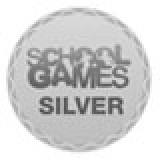Modern Foreign Languages
Subject Leader: Mrs Harpur
At Airedale Junior School, we aim to deliver a high-quality French education, which engages children and inspires them to develop their love of language. We believe that French will enrich the lives of our children and help them to raise a greater awareness of differing cultures and their place within the wider world.
Our school follows the Rigolo scheme of French and we use this as a basis for coverage.
Rigolo is designed to deliver the French language through a repetition-based approach, meaning skills are repeated through units of work. This helps the children develop their knowledge and skills and learn about the same linguistical concepts through different activities, enabling children to master the French language.
The curriculum for French at Airedale Junior School aims that all pupils:
- Listen attentively to spoken language and show understanding by joining in and responding;
- Explore the patterns and sounds of language through songs and rhymes and link the spelling, sound and meaning of words;
- Engage in conversations; ask and answer questions; express opinions and respond to those of others; seek clarification and help
- Speak in sentences, using familiar vocabulary, phrases and basis language structures;
- Develop accurate pronunciation and intonation so that others understand when they are reading aloud or using familiar words and phrases;
- Present ideas and information orally to a range of audiences;
- Read carefully and show understanding of words, phrases and simple writing;
- Appreciate stories, songs, poems and rhymes in the language;
- Broaden their vocabulary and develop their ability to understand new words that are introduced into familiar written material, including through using a dictionary;
- Write phrases from memory, and adapt these to create new sentences, to express ideas clearly;
- Describe people, places, things and actions orally and in writing;
- Understand basic grammar appropriate to the language being studied, including: feminine, masculine and the conjugation of high-frequency verbs; key features and patterns of language; how to apply these, for instance, to build sentences; and how these differ from or are similar to English.
The Airedale French Curriculum
Our curriculum is skills and knowledge based, including full coverage of the National Curriculum which meets the needs of all Airedale Infants and Junior pupils. This takes into consideration the school setting, local, national and international developments.
Our pupils are offered a very wide range of experiences within the curriculum to extend their understanding of themselves and the world in which they live. The children develop skills, attitudes, and values to enable them to become lifelong learners and equip them for the future. The ability to learn is underpinned by the teaching of basic skills, concepts, and values. There should be no limits to curiosity, and we instil a thirst for new experiences and knowledge.
We actively promote British Values and Social, Moral, Spiritual and Cultural differences. We also provide opportunities for our pupils to learn about the contribution of Britons to innovation, excellence and changes in the world.
The Curriculum has been organised into topics which are a vehicle to promote our school values and curriculum drivers, and allow for the development of skills and understanding within and across the subjects. Our curriculum topics allow the teaching of threshold concepts that are the fundamental ‘learning elements’. These concepts are built upon and developed within the year, across the year and over the course of the school experience.
Adaptive teaching (aka agile teaching) recognises: individual needs; the need for varied and additional resources; when, where and how additional support can be facilitated; and how children learn best. Teachers must plan lessons so that all pupils can study every national curriculum subject and experience success against age-appropriate expectations and/or their own bespoke personal targets.

French links closely to our school drivers. Our TRUST values of Ambition, Bravery and Respect underpin our school ethos. Being independent and fostering a love for learning is crucial in our school. Through French, our children are encouraged to build up good relationships their peers, work independently and collaboratively, supporting one another. Children are taught the skills of resilience and perseverance, which prepare them for the challenges that they are given in school, as well as the wider world.
Oracy and communication are fundamental skills that we believe equip our children to be life-long learners. French supports this aim by children being able to develop their speaking and listening skills and articulate their progress in their learning. Our pupils understanding that their voice is a vital tool required for supporting and developing one another is crucial to aid success and promote the use of technical vocabulary. The vocabulary taught in French is progressive and we encourage children to know, understand and apply this vocabulary in context.
How do we ensure progression of knowledge and skills?
Lessons are planned so that children develop an understanding of the differing components of the French language, whilst they acquire and develop key skills. Children are taught to be both collaborative and independent in order to develop their language skills.
French skills progression document Y3 & Y4
French skills progression document Y5 & Y6
French teaching overview document
Look what we have been up to in our lessons!
How is the subject taught?
When children are in French lessons, they are explicitly told that they are going to develop their language skills. They are then reminded of the key skills that they will learn, use and develop within this subject, specifically linking to their prior learning. The knowledge content is carefully selected and skilfully taught alongside the key skills and concepts, which are threaded throughout the curriculum. This allows children ample opportunities to revisit, reinforce and embed skills.
How do we know that our children are making progress?
Ongoing assessments of the children’s knowledge and skills are observed by the class teacher. Misconceptions are addressed and next steps carefully planned. Children’s outcomes are compared to the subject specific skills and knowledge documents. At the end of a block of discrete teaching (or term) subject leaders gather an overview of children’s outcomes in French. This is used to plan appropriate next steps for their future learning, as well as provide an overview of learning within a subject area across the whole school.
French: Further Information & Links








